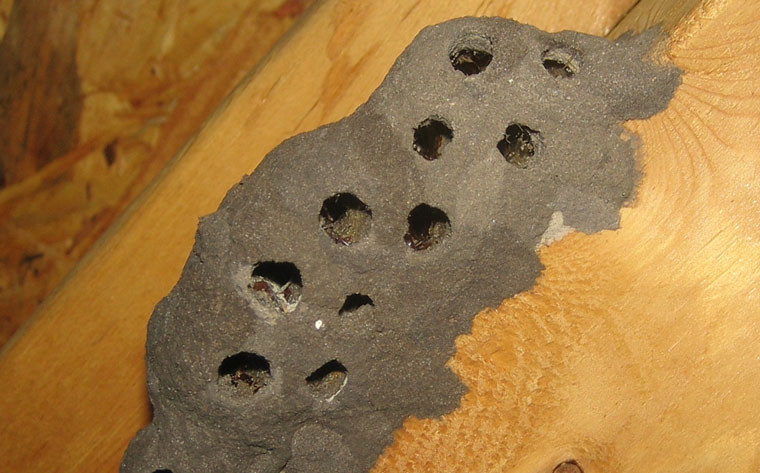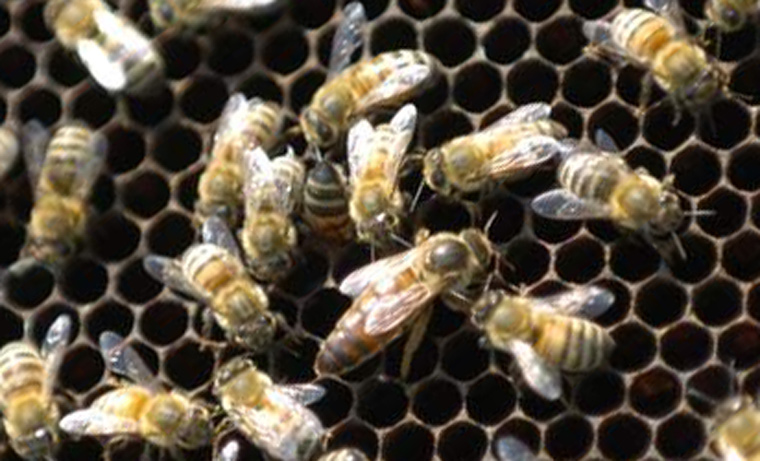-
info@aaanimalcontrol.com
Call us for help in your town
Humane Wildlife Education
Removing honey bees from your house
Need bees removal in your hometown? We service over 500 USA locations! Click here to hire us in your town and check prices - updated for year 2020.
No matter how much you appreciate the fact that bees serve a valuable purpose in helping to keep the environment in the ecosystem as healthy as possible, that does not mean that you want them gathering in your home. You may find that there are instances where honey bees will get into your house, and you want to try to remove them as quickly as possible.

While you want these bees out of your home it is also likely that you want to take steps that in no way harm the bees. Because these are such important creatures to our ecosystem and there is a concern about the overall health of honey bees throughout the globe, it makes sense to take steps that protect them while also getting them out of your home. If you're wanting to know how to remove honey bees from your house, then here are some steps for you.
The easiest of these is to contact a local beekeeper and asked them to come out and get the bees for you. The truth of the matter is that they would most likely welcome the opportunity to get some free bees to add to their hive, and may come out and handle your problem for you at no cost or concern to you whatsoever.
There are rarely any instances where beekeepers will not take bees to add to their hive. The more that they have the greater the production of honey they can produce which is beneficial for their livelihood. Look around online and see if there is somebody in your area who will handle this problem for you. It's a win–win for both of you.
Your second option is to call an exterminator. Keep in mind that if this is the option you decide upon that it is most likely that they will use some kind of poison to kill off the bees. These are not people who capture bees for a living. They exterminate them. So, if you are choosing to go with this option you are basically sentencing each of these bees to death, because this is all that they are going to do.
The next thing that you can do is to try to trap the bees outside. There are several different kinds of traps that are geared towards bees that you can attach to the location where they are gaining access to and from your house. As they get out of the house, they are blocked from being able to get back into the home. This denies them the ability to return to the hive, and eventually these bees will leave your house.
You really have three options that are available to you in this situation, and you should be aware that there are beekeepers that will assist you. Before deciding to take any other kind of action, be encouraged to try to take the pathway that leads to life. You may be surprised at how much you are benefiting the ecosystem as a whole by choosing this option.
Removal of Honey Bees from House
Need wildlife removal in your hometown? We service over 500 USA locations! Click here to hire us in your town and check prices - updated for year 2020.Each case of honey bees in a house is unique from every other, and that's why we would always recommend calling in the professionals — beekeepers — rather than trying to resolve the situation yourself. Do you know whether or not you are allergic to bee stings, for example? If you have never been stung before, you won't know this. If you *are* allergic to bee stings, it could take just one sting to kill you, without the right medical intervention, and that's why this can be a very dangerous job.

Even if you have been stung before, and you know you are not allergic to bee stings, the situation can still become a dangerous one. Disturbing the hive is likely to result in a lot of angry bees, and they are going to fly for and then attack (sting) anything that comes in their path. As well as you, this can include your household pets, any other adults that live in your home, the children that live in it, and also nearby residences also. Angry bees can swarm and fly fast, and it won't be long before they're attacking other people and animals in the neighborhood, with enough anger inside of them.
Secondly, moving these honey bees on your own could result in damage to any of the hive, including the queen. Bees are very important to humans, and it has been proven that many crops would simply not exist without bee pollination. This means that many of our favorite foods just wouldn't grow if it weren't for them. Bees are very good to us, and the last thing we should be considering doing is killing them off or harming them in any way. Think about that the next time you reach for your can of fly or bug spray when a wasp or bee enters your home.
What to do when you find a honey bee hive in the house
Do you know that it's definitely a honey bee hive? You'll want to be sure about this. Wasp nests are considerably more dangerous and vicious than bees are, and you definitely won't want to confuse the two and think you'll be safe in moving a bee hive.
Where you find the hive or nest will often give you a clue as to what animal you're dealing with — a bee or a wasp. Wall cavities tend to be favored more by wasps, particularly the infamous yellow jacket. Seat cushions, foam pads, and insulation in attics and wall cavities are preferred by other bees. Honey bees really like wall cavities, however, and especially those walls that do not have a layer of insulation. The placement of the nest will not determine the beast inside it alone, however, and we would still recommend that you get a professional opinion before taking any action.
The time of year will also give the game away, as far as bees and wasps are concerned. If you're hive-hunting between the months of April and June, there's a very good chance you're dealing with a hive of honey bees. If you see dead insects and they are hairy, you're also looking at a bee, rather than a wasp. Most of the time, however, you're not going to want to be that close to them to see whether or not they are hairy. Although bees are not as dangerous as wasps are, a hive of angry bees can still be dangerously aggressive.
We would highly recommend that you seek out advice from a professional bee keeper if you think you have a hive of honey bees on your property. You will want to ensure these honey bees are relocated somewhere, by a professional, where they can survive. More than that, you'll want them to thrive. Many professional bee hive removal experts even offer their services for free, because of the endangered nature of certain species of bee. Once again, we reinforce that you should always call a professional to help you deal with a hive or nest of bees or wasps.
For more information, you may want to click on one of these guides that I wrote:
How To Guide: Who should I hire? - What questions to ask, to look for, who NOT to hire.
How To Guide: do it yourself! - Advice on saving money by doing wildlife removal yourself.
Guide: How much does wildlife removal cost? - Analysis of wildlife control prices.
Animals in the attic - read about the common species.
Noises in the attic - how to identify critters by their sounds.


















